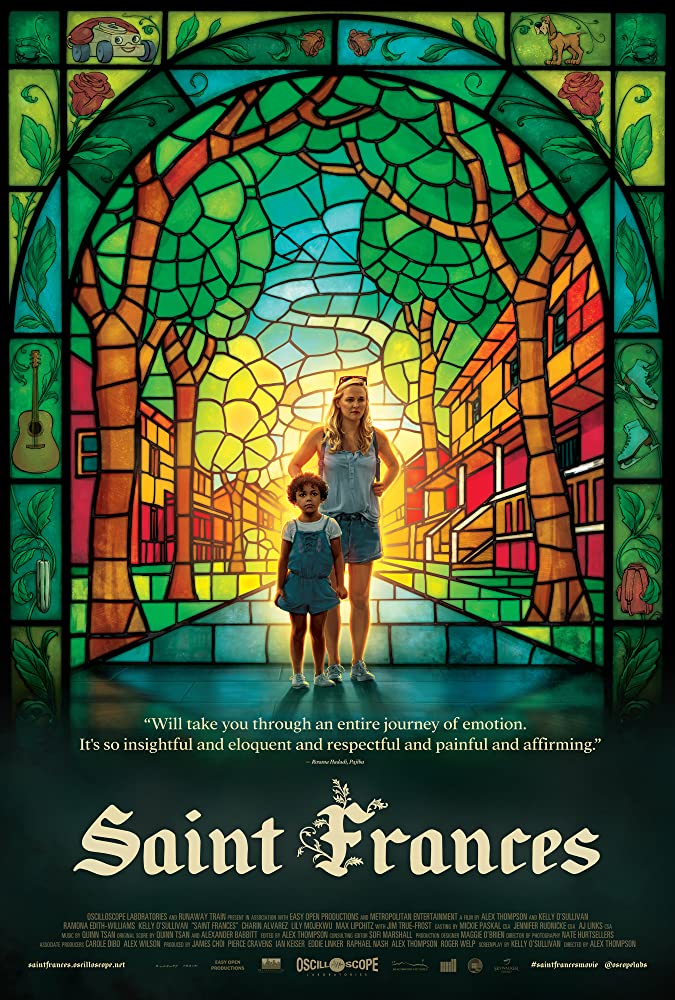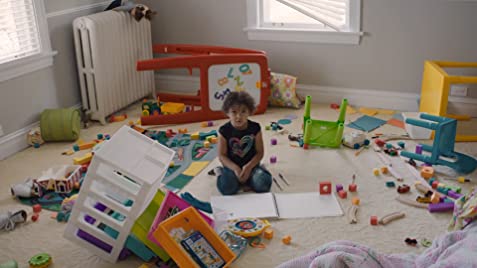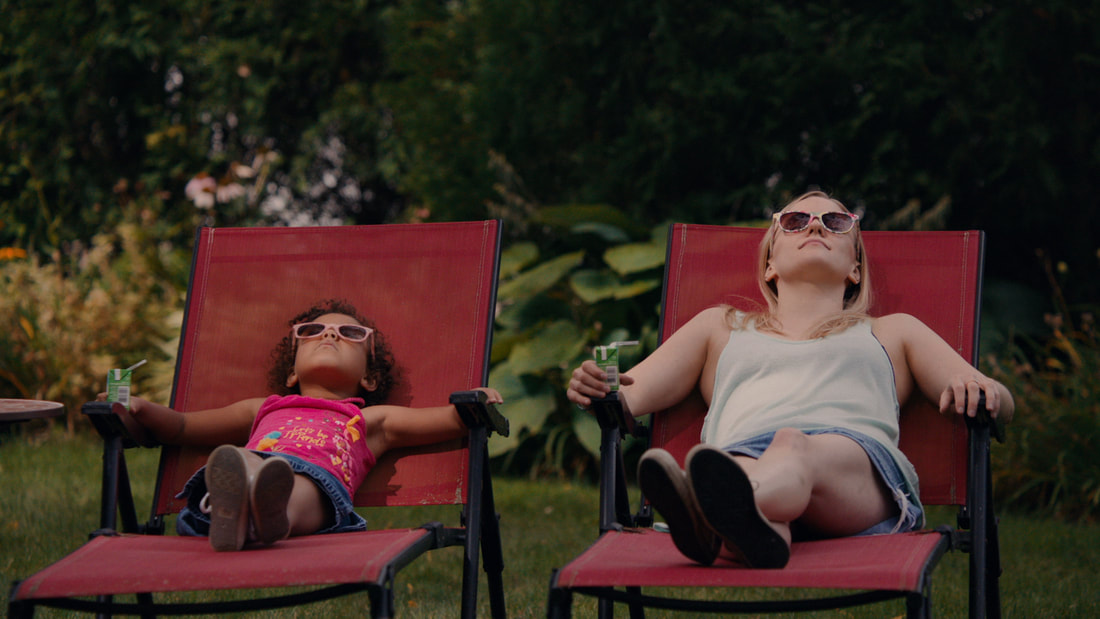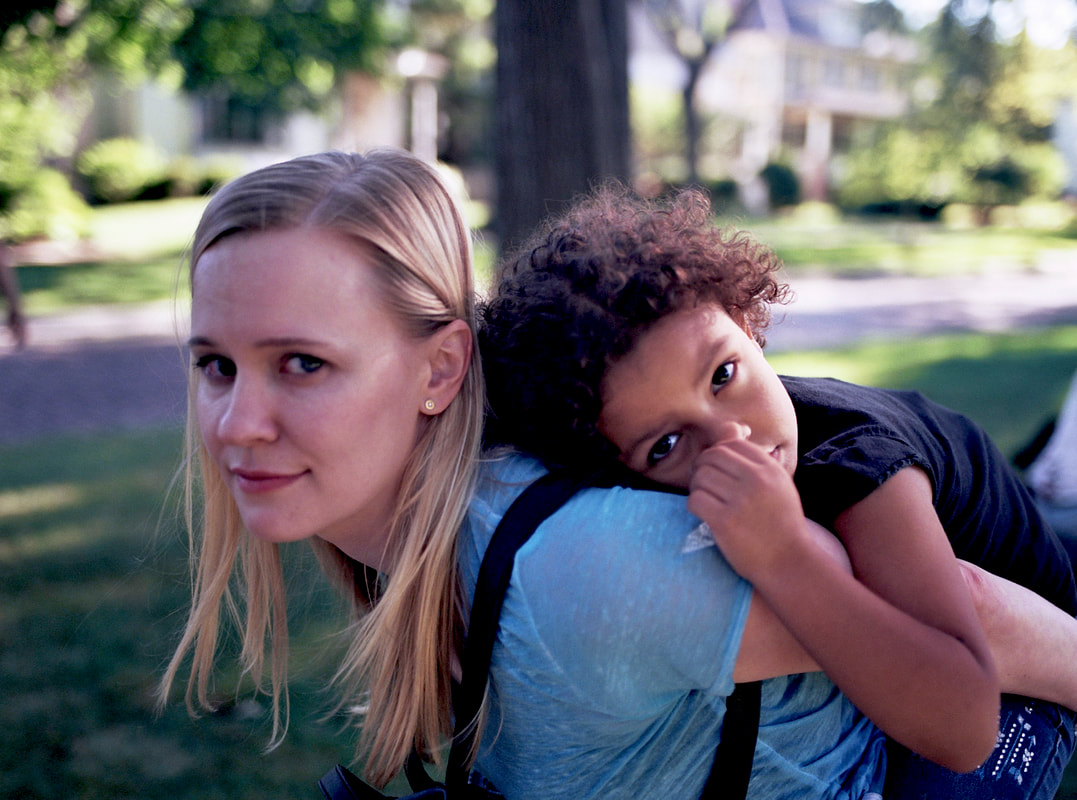|
In a sharply written opening scene, we meet Bridget at a party. She’s listening to a bore of a man recounting his dream and lamenting about his life without first asking about hers. She is 34, a server in a restaurant and feels life has stalled. The flippant and dismissive remarks by this man cut deep. Looking for a change, she interviews for a job as a nanny to 6-year-old Frances (Ramona Edith Williams), despite being no way qualified and lacking in basic maternal instincts. Frances’ mums Annie (Lily Mojekwu) and Maya (Charin Alvarez) have just had another child and need help at home because Annie doesn’t get any leave from her demanding job (thanks, American employment system). Through necessity rather than skill Bridget gets the job and is thrust into this world of childcare while at the same time dealing with the physical aspects of having an abortion. Frances is rambunctious, strong-minded and smart. She’s a complete handful for the inexperienced Bridget but they start to form a deep bond. As they get to know each other both their hard exteriors soften. As the film progresses we see the different women and girls’ lives changing, breaking and mending again. This is a taboo-busting film in many ways. It exposes difficult aspects of many women’s lives without flinching. Menstrual blood is shown many times as an inconvenience rather than a horror. Anyone who menstruates will know what it’s like to leak, spot, have a period arrive early and generally be a massive headache. It is not shocking or disgusting, it’s how bodies work. Supporting this point is the immensely affable and unphasable boyfriend Jace (Max Lipchitz). He helps without fuss and is never put off by Bridget’s body, just wanting genuine emotional engagement. The addition of this open-minded male character shows that it’s not just women who are able to discuss this kind of bodily function but any sensible man should be able to do it too. Charin Alverez brilliantly captures a slow and insidious decline into post-natal depression, not often shown in such a natural way on film. It shows how important it is to be open about mental health. Her subtle portrayal of this downward spiral is particularly saddening. One particular incident threatens to undo all the progress and bravery Maya has built up and bring her crashing back down again. Heartless and cruel words have the potential to not just wound but destroy, reminding us that you never know what someone else is going through. Some will decry ‘shoehorning wokeness into the film’ on a few angles. Because apparently there needs to be a justifiable reason for showing things on film we don’t normally see, beyond just representing people’s lived experiences. Firstly, the interracial lesbian couple, comprising a Black woman and a Hispanic woman. These people exist in real life all around us, and this type of couple exists so it’s absolutely wonderful to not just see them on screen but to see their struggles and joys too. They’re not a perfect happy family by any means but then neither is anyone else’s. Seeing this couple on screen is refreshing, and reminds us that everyone’s stories are worthy of being told. The subject of abortions in film is not new but the intimacy in which it is shown here was particularly honest. We got to hear all the instructions and potential side effects of taking the medication so it was an education into the process itself, not solely focusing on the emotional side. So, although some may accuse this film of wokeness for its own sake, it may be that for those people the film captures something they haven’t seen before and that makes them uncomfortable. This film is a celebration of all kinds of women’s lives. Small victories are worth shouting about, like standing up for yourself even when you feel rubbish. It shows us that nobody’s life is perfect and you never know what a person is dealing with. And on top of that “Saint Frances” is sharply funny. It cuts complicated situations and interactions to the bone with a single line expertly delivered. It’s refreshing, honest and affecting. It says it’s ok to be you and to deal with everything you’re dealing with because nobody has got it right. Comments are closed.
|
AuthorHi, I'm Caz. I live in Edinburgh and I watch a lot of films. My reviews focus mainly on women in film - female directors or how women are represented on screen. Archives
December 2021
Categories
All
|






 RSS Feed
RSS Feed
